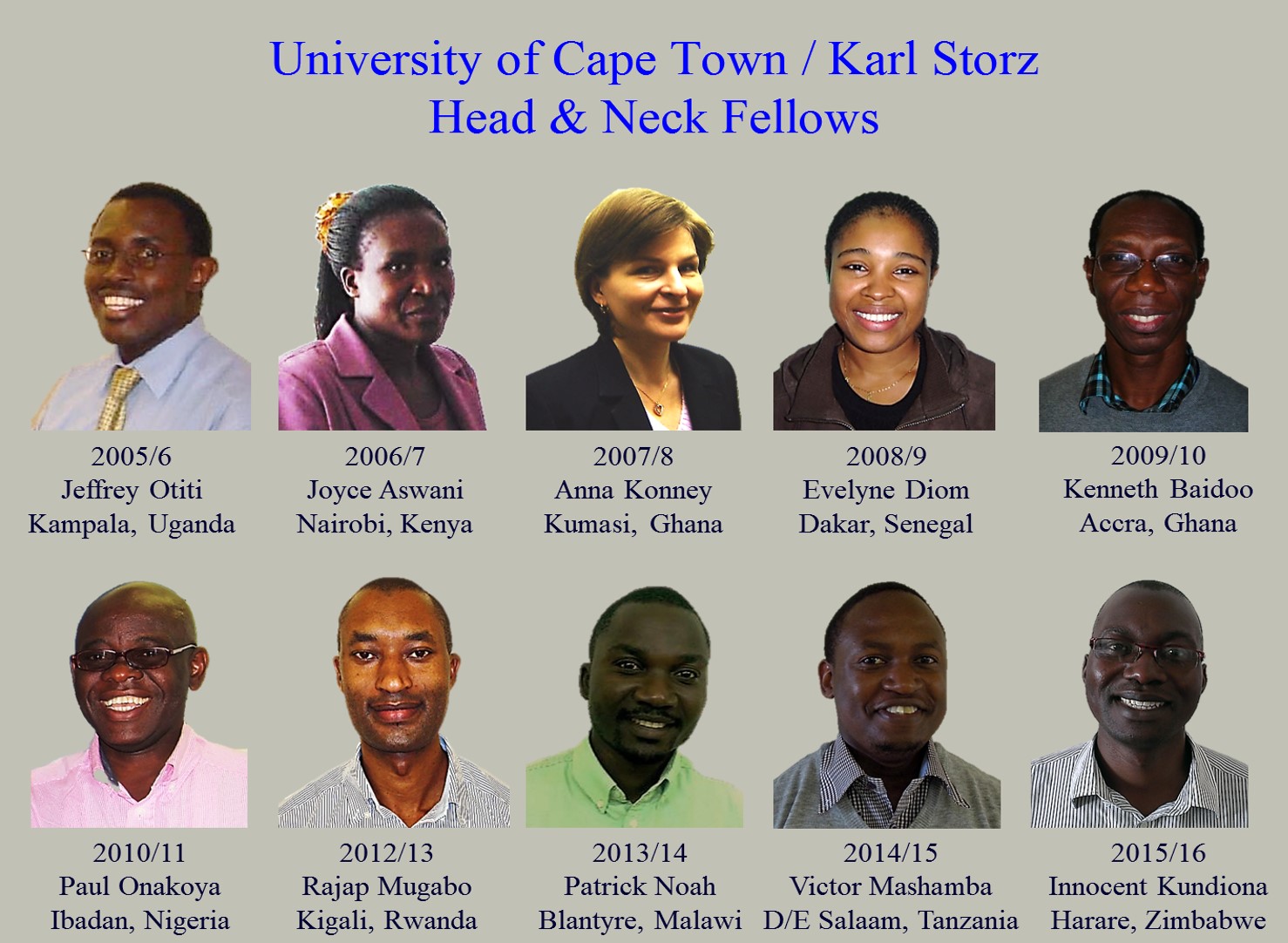UCT Head and Neck Surgery: working ahead in Africa and beyond

Head and Neck surgeons care for patients with benign and malignant diseases of the head and neck. Prior to the UCT Head and Neck Fellowship programme, there were no trained Head and Neck Surgeons in Africa other than in Egypt and South Africa. Hence patients in many countries were dying from curable benign and malignant diseases. Further, because about half of African countries do not have radiation facilities, surgery is the only curative option in such countries.
The UCT Division of Otolaryngology established the only Fellowship in Advanced Head and Neck Surgery in Africa 10 years ago. It is funded by Karl Storz Endoskopie, a German medical equipment company. Fellows are already qualified as ENT and general surgeons, and join the Division for a period of one year. They spend up to 4 days per week in the operating theatre as well as attend the Division’s multidisciplinary cancer clinic. They are taught thyroid surgery by general surgeons, and management of facial trauma by maxillofacial surgeons. Prof Johan Fagan, who heads the programme, says that a recent benchmarking of their fellowship against two top USA programmes found that UCT fellows have greater surgical exposure than their American counterparts.

Fellows have emanated from Kenya, Uganda, Tanzania, Malawi, Rwanda, Zimbabwe, Senegal, Nigeria, and two different centres in Ghana. All have returned to teaching hospitals to teach and train others. The next two fellows on the programme are from Nigeria and Ethiopia.
UCT has benefited in many ways from this programme. It has created an awareness among our staff about challenges of living and practising in poorer African countries; we now have an extensive network of friends and colleagues throughout Africa; and our division is internationally celebrated for the leadership role it has assumed in head and neck surgery in Africa and the developing world.
“We plan to celebrate the completion of the 10th Fellowship in Rwanda in June, which will be attended by all 10 past fellows,” Prof Johan Fagan says proudly. “We will also be launching a new organisation, the African Head and Neck Society (AfHNS) at the same meeting. Our past fellows will initially be the office bearers and drivers of the society. Such a society is key to entrenching and advancing head and neck surgery in Africa.”